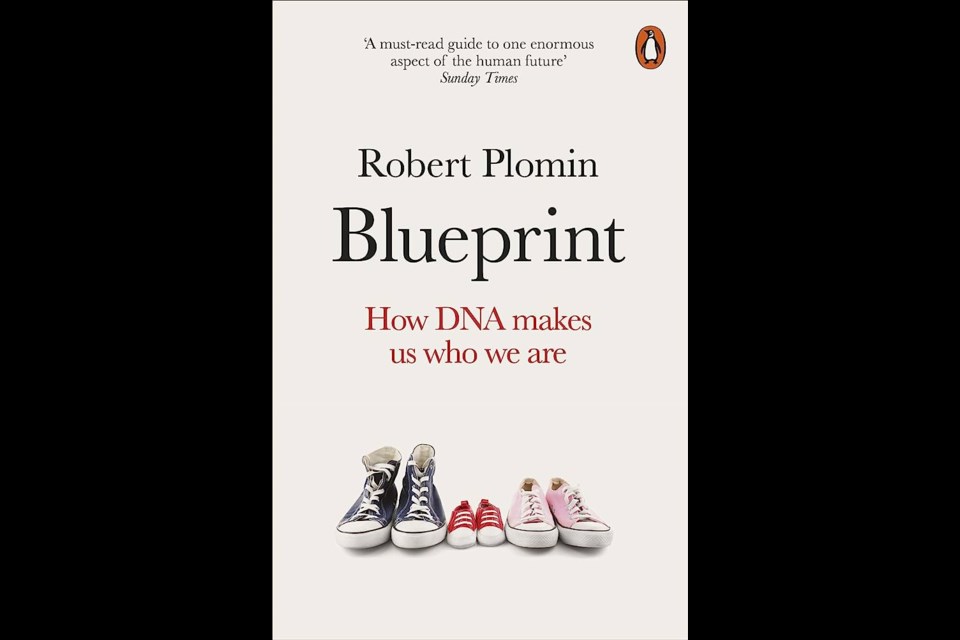Blueprint. How DNA makes us who we are
Robert Plomin, MIT Press, 266 pages
DNA is not Destiny – the Remarkable, Completely Misunderstood Relationship between You and Your Genes
Steven J. Heine, WW Norton & Co, 344 pages\
Is human behavior influenced by genes and if so, how much? There are many books available on this matter. Plomin and Heine represent two interesting perspectives on this subject.
In many cases genes definitely influence behavior – one can point to conditions such as trisomy 21 (also known as Down syndrome) Rett syndrome and many others. These unfortunate people have considerable genetic abnormalities, conditions which are not relevant to the theses of these books, which deal with how a normal genetic complement affects the spectrum of “normal” human behavior.
Plomin is a major researcher in the relatively new field of behavioral genetics, his research resting heavily on two interesting methodologies.
The first is the study of twins, and identical twins in particular. Approximately 0.3% of births produce identical twins. Anybody with one of an identical twin as spouse will affirm that their behavior sometimes exhibit almost spooky similarities.
One may argue that such similar behavior patterns are not necessarily the result of genes. Twins, and identical twins in particular, share not only the same genes but also an almost identical environment as children, with inevitable effects on behavior.
However, intensive studies of identical twins who were separated at birth and grew up unaware of their siblings’ existence and their sibling’s upbringing still show the important role of genes in shaping behavior.
The second major methodology, and a very important one, is known as GWAS: Genome Wide Association Studies, which Plomin briefly explains. The reader does not have to grasp the details of this method to understand its implications.
Both these methods have delivered very interesting results indeed.
One of Plomin’s many investigations and the only one I will discuss, was the relationship between genes and IQ. This inevitably raises the question: if there is such a relationship, is the difference between black and white Americans rooted in genes? This question rose to prominence in 1994 with the publication of The Bell Curve by Richard Herrnstein and Charles Murray.
There are in fact two Bell Curves: the book as it was written, and the book that was written about. It was severely and often unfairly criticized by authors on the politically correct side of the fence. Even now it is sometimes mentioned when a discussion touches upon ethnic groupings, genes and IQ.
It is by no means a perfect book, deserving of criticism, but much of the content was factually correct.
To speak of IQ and genes is to step right into a minefield, to be accused of racism and even perfectly innocent comments have destroyed careers when the politically correct have someone in their crosshairs – see the link (1) at the end.
Plomin himself has been accused of racism, although to the best of my knowledge he has not published any research about relationships between ethnic groups, IQ and genes, and has never even alleged that human races exist. What he has done is to show that there is an undeniable relationship between genes and intelligence, and that the former, broadly speaking, contribute about 50% to intelligence. This value may differ due to age and other factors which Plomin mentions. The rest is due to the environment. He makes no mention of any relationship between intelligence, ethnic groups and genetics.
I think that Plomin could perhaps have paid a little more attention to the role of the environment, but of course his book also deals with behavioral genetics as such, so perhaps this omission is understandable.
Plomin advocates a so-called DNA learning chip for plotting the trajectory of children in schools and early identification of learning problems: "It's wholly accepted that preventative medicine is the way to go… Why not preventative education? We wait for problems such as reading disability to develop. Children go to school, they fail, they get diagnosed, they're given special resources but by then it's too late. They've only ever experienced failure and it's like putting Humpty Dumpty back together. Once you have the genes, you could predict difficulties and hopefully prevent them."
Not all scientists agree with this point of view and just how effective this will be in practice remains to be seen. But he comes across as entirely reasonable and optimistic in link number (2).
Heine approaches the matter from a different angle, emphasizing the role of the environment but neglecting genetics, the obverse of Plomin’s perspective. Six of the one and half a dozen of the other…
His discussion of the effect of the environment, such as domestic and social circumstances, are interesting. He also indirectly comments on aspects of the research of behavioral geneticists by asking if the relevant study populations were indeed representative of the country or socio-economic groups in question, and also shows how poverty influences intelligence. The latter is, in my opinion, important and often overlooked.
Most people are probably aware of the sometimes acrimonious nature-nurture debate, but there cannot be any doubt about the importance of genes. The problem is that this may easily lead to a somewhat reductionist approach in which the importance of the environment can be cast aside.
2) https://www.youtube.com/watch?v=BYGUjIlq5yA
The views and opinions expressed in this article are those of the author, and do not necessarily reflect the position of this publication.




